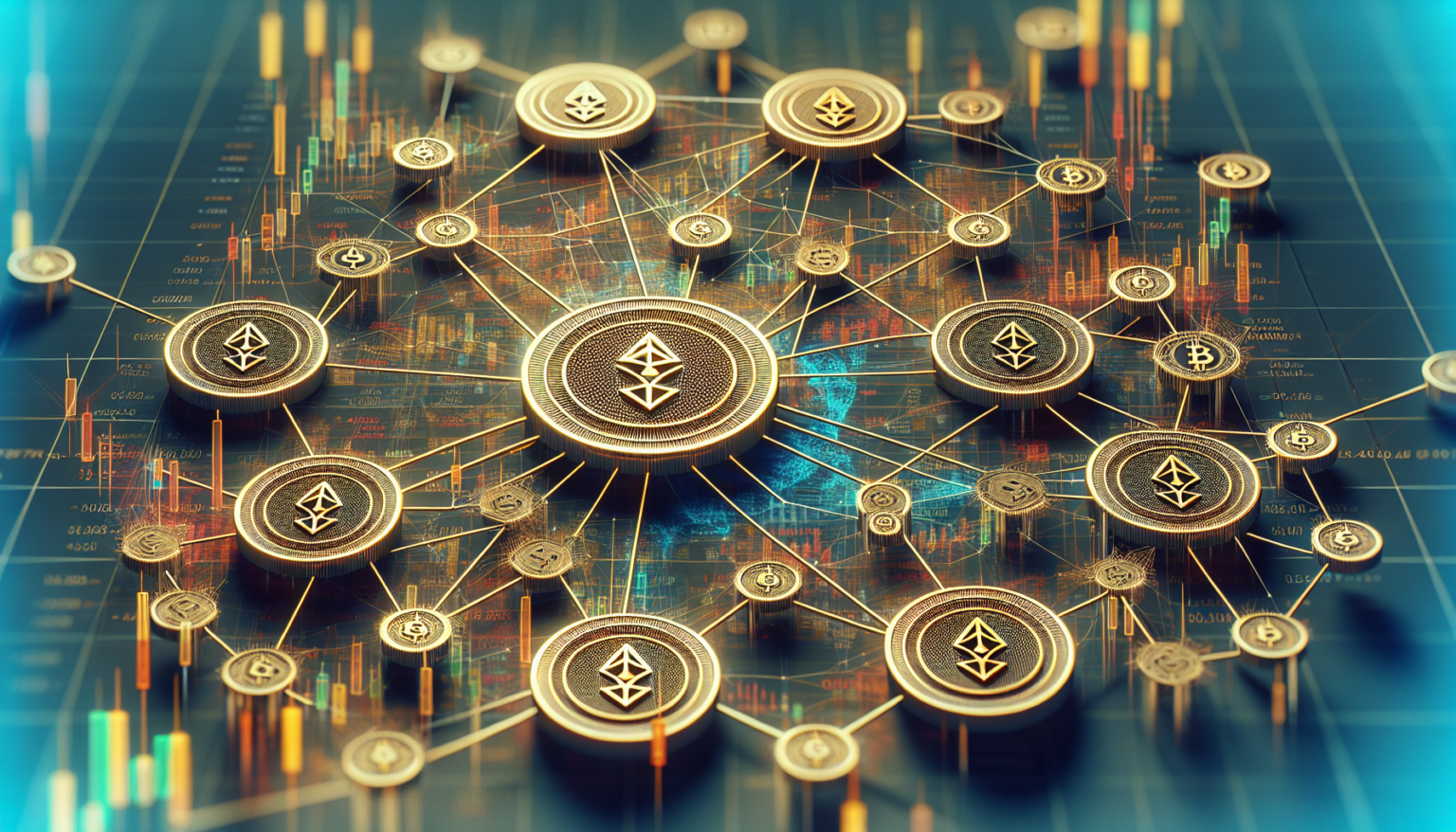Understanding Governance Tokens
Governance tokens are a pivotal element within the realm of decentralized finance (DeFi). At their core, these tokens are designed to give holders the power to participate in the decision-making processes of a blockchain protocol, particularly those that are decentralized in nature. Governance tokens serve as a bridge between the users and the protocol itself, allowing community members to weigh in on various issues.
What Are Governance Tokens?
Governance tokens are digital assets that grant holders voting rights within a decentralized platform. Typically issued by decentralized autonomous organizations (DAOs), these tokens allow users to influence key decisions, such as modifications to the protocol’s operational rules, the management of treasury funds, and the setting of future project directions. The tokens can be acquired through various means: buying them on exchanges, earning them through farming, or receiving them as rewards for participation.
Key Features of Governance Tokens
There are several characteristics that define governance tokens:
Voting Power
One of the primary features of governance tokens is the voting power they confer. Holders can propose changes or vote on proposals put forth by other community members. The more tokens a user holds, the greater their voting power, typically calculated using a one-token-one-vote system.
Incentive Alignment
Governance tokens align the incentives of users with the health and development of the protocol. Holders of governance tokens are often vested in the long-term success of the project, encouraging them to engage actively in governance decisions that shape the future.
Decentralization
By distributing governance tokens widely within the community, projects can achieve a more decentralized decision-making process. This decentralization reduces the risk of a single entity acquiring too much control, promoting fairer outcomes.
Speculation
While governance tokens are fundamentally about participation, there is also a speculative nature to them. Many users buy tokens not only for their governance rights but with the hope that their value will appreciate over time. This speculation can drive engagement and liquidity but can also lead to price volatility.
The Role of Governance Tokens in DeFi Protocols
Governance tokens are crucial to various DeFi applications, serving different functions depending on the project. Let’s delve into some specific roles these tokens play in decentralized finance.
Facilitating Community Governance
Community governance is a central tenet of DeFi, and governance tokens are at the forefront of this trend. They empower token holders to propose changes, vote on new features, and make necessary adjustments to existing functionality. This democratic approach not only ensures that the voice of the community is heard but also fosters a sense of ownership among users.
Proposal Mechanism
Typically, governance involves a proposal mechanism where any holder of governance tokens can submit a proposal for consideration. Subsequent discussions, debates, and voting follow, often facilitated through dedicated platforms or forums.
Voting Processes
There are various forms of voting procedures, from simple majority to delegated voting. In delegated voting, token holders can delegate their voting power to others they trust, a method that helps streamline decision-making processes.
Funding and Project Development
Another critical aspect of governance tokens is financial oversight. Holders often have a say in how protocol funds are allocated, including grants for development, marketing initiatives, and liquidity incentives.
Control Over Treasury Assets
In many protocols, governance token holders manage treasury assets. This can involve deciding how much liquidity to provide in various markets, investing in partnerships, or setting aside funds for future development. The decision-making process around financial management underscores the importance of having a well-informed and engaged community.
Protocol Upgrades
As the DeFi ecosystem evolves, protocols need to upgrade their functionalities. Governance tokens enable holders to propose and vote on significant upgrades, such as new features or technology implementations, ensuring that the community shapes the future direction of the protocol.
Challenges and Considerations
While governance tokens present exciting opportunities, there are challenges that need addressing.
The Problem of Voter Apathy
One common challenge in the governance landscape is voter apathy. Many governance token holders may not participate actively in governance processes. This disengagement can skew decision-making towards the interests of a small, active minority who participate regularly.
Engagement Strategies
Protocols have implemented various strategies to combat voter apathy, including incentivizing participation through rewards or making governance processes more user-friendly. Offering comprehensive education and making voting easier can also encourage broader participation.
Concentration of Power
Another concern is the potential concentration of power among a few large holders. If a small group owns a significant percentage of governance tokens, they can dominate decision-making processes, undermining the goals of decentralization.
Mitigating Concentration Risks
To address this, some protocols employ mechanisms that limit the voting power of large holders or incentivize broader distribution of tokens. These mechanisms can include voting caps or quadratic voting systems, where the cost of additional votes increases with the number of tokens held.
Security and Fraud Risks
Governance proposals and voting systems can be exposed to manipulation or attacks. There have been instances where malicious actors attempt to manipulate vote outcomes by acquiring large numbers of tokens just before a voting event.
Improvements in Security Measures
Protocols need to adopt robust security measures and transparency protocols to ensure the integrity of governance. Conducting audits, utilizing multisig wallets, and implementing decentralized or insurance-backed voting systems can enhance security.
The Future of Governance Tokens in DeFi
The potential of governance tokens in DeFi extends beyond traditional voting rights. As the industry matures, governance mechanisms are likely to evolve, introducing innovative features that further enhance community engagement and decentralization.
Integration with Layer 2 Solutions
With the rise of Layer 2 solutions aimed at improving scalability and reducing transaction costs, governance tokens may be integrated into these ecosystems, enhancing their utility and appeal.
Cross-Protocol Governance
The concept of cross-protocol governance could also emerge, where governance tokens from different platforms interact. This may allow for a more cohesive governance structure across different DeFi protocols, presenting a new layer of functionality for token holders.
Experimentation and Evolution
The governance landscape within DeFi is still in its nascent stages, leaving ample room for experimentation. New models of governance, both successful and unsuccessful, will shape the future role of governance tokens and the degree to which they promote decentralization and community engagement.
In summary, governance tokens play an invaluable role in the decentralized finance ecosystem, enabling community involvement, enhancing project transparency, and fueling the growth of innovative financial solutions.








